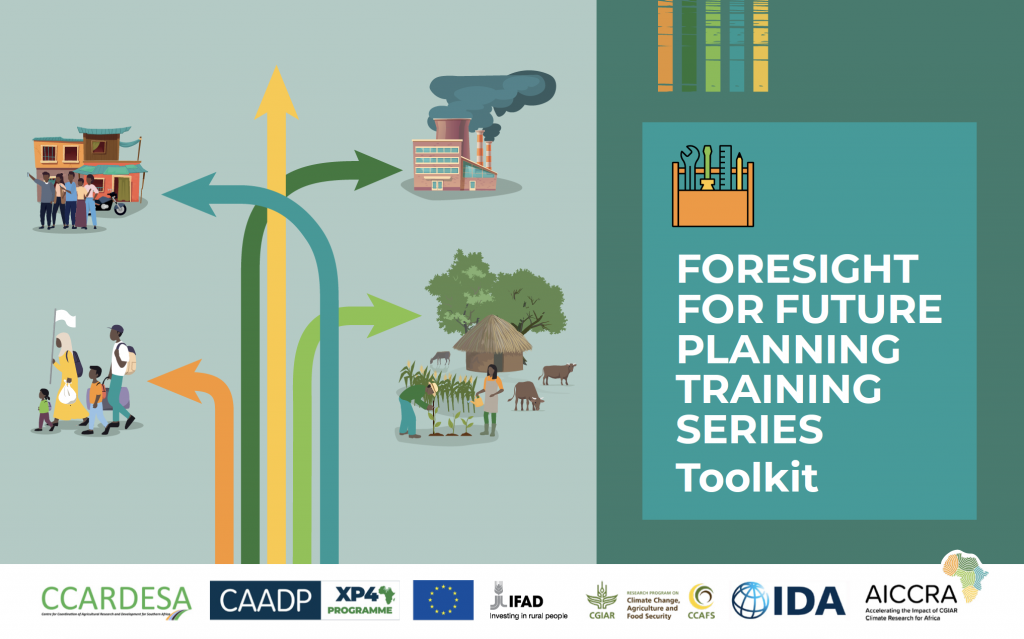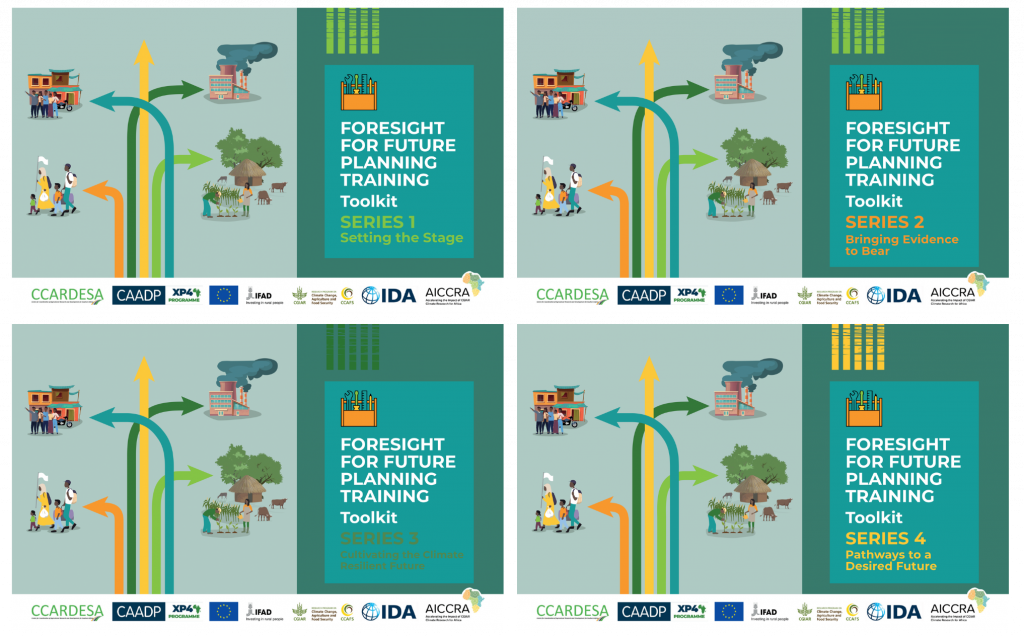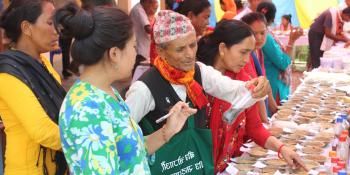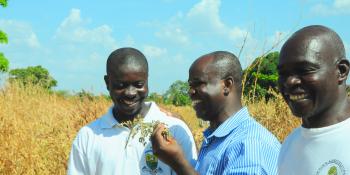Future-proofing planning in a changing climate
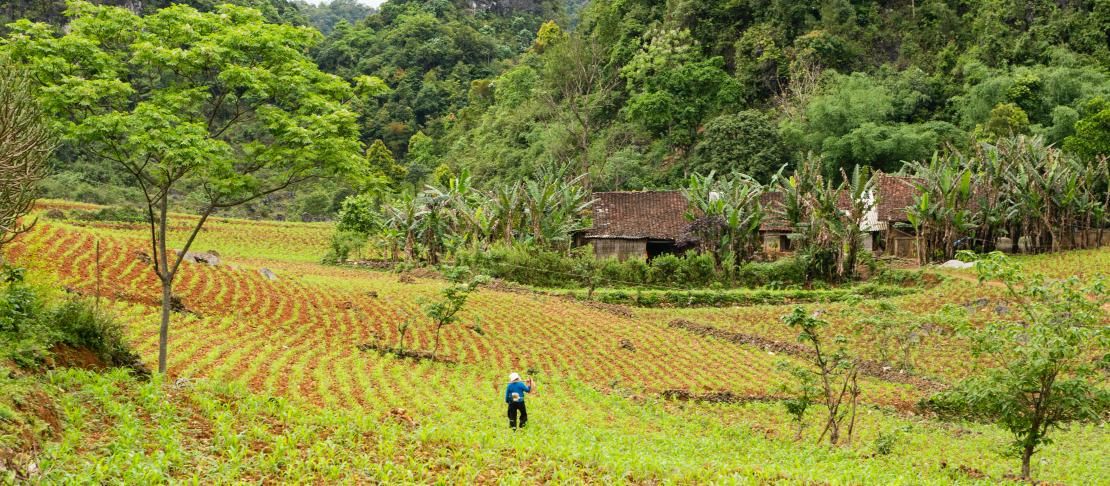
In these highly uncertain and rapidly changing times, the Southern African Development Community (SADC) region remains fundamentally dependent on a robust and resilient agricultural system and natural resource base.
Climate change poses the greatest threat to the productivity of agricultural systems due to extreme weather events such as widespread drought and floods. These climate-related shocks are hard to predict in terms of planning for the future.
We need to build resilience to these shocks. We often build our plans and strategies based on actions that result in incremental change but instead we need actions that are transformative and suitable for the future that is coming.
What is foresight and why is it critical we build capacity for future planning?
Foresight is an approach through which we can investigate possible futures and create resilient strategies and policies that are responsive to changing environments.
The foresight methods have been used across many sectors including a long history in business as a tool to predict future trends. Increasingly, with the rapid onset of changes and the unpredictability climate change brings to many regions, the ability to apply foresight to this context is becoming critical.
Training key stakeholders working on climate resilience in the SADC region
Over four linked sessions, 166 people from 26 countries participated in a sensitization training that introduced foresight as a set of tools and methods for long-term planning, with the training focusing on applying the foresight method around the theme of climate-resilient food systems.
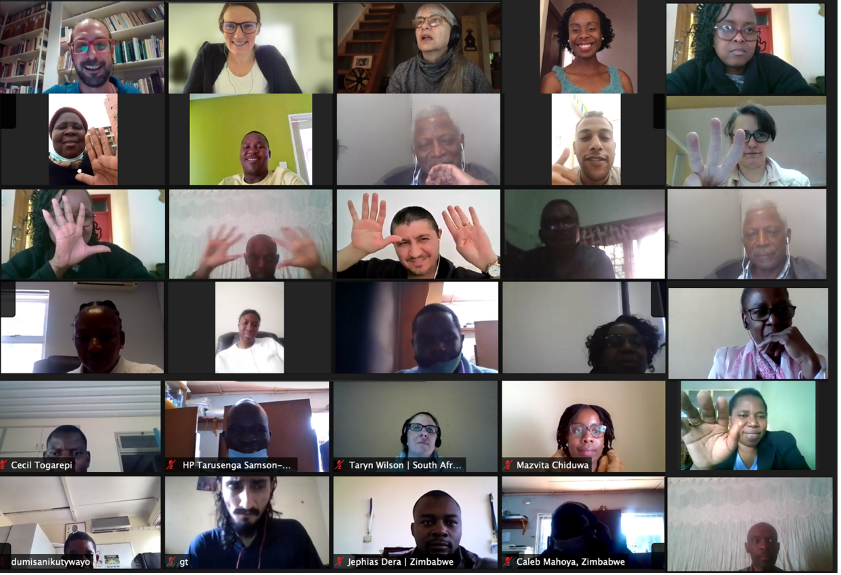
Photo: The highly interactive training saw participants engaging into virtual exercises, breakout groups and cross-learning.
The training organizers introduced foresight to the participants: “Using foresight tools and methods, we can plan the transformational change that will be needed to move towards the future we want.”
Considering alternative futures, this training series equipped users to practically apply a range of foresight tools and methods for innovative research in development prioritisation, specifically assisting in strategic planning and policy formulation, with the training building practical examples of how to apply foresight in the context of climate relevant transformation in agriculture and food systems.
We want to continuously build capacity in this area, particularly in foresight, which we see as a way of thinking, and we’d like our stakeholders to embrace it as we face a lot of uncertainties posed by climate change.”
Dr. Baitsi Podisi, CAADP-XP4* Regional Programme Coordinator at CCARDESA
The training was based on the foresight framework developed by AICCRA scientists, Sabrina Chesterman and Constance Neely:
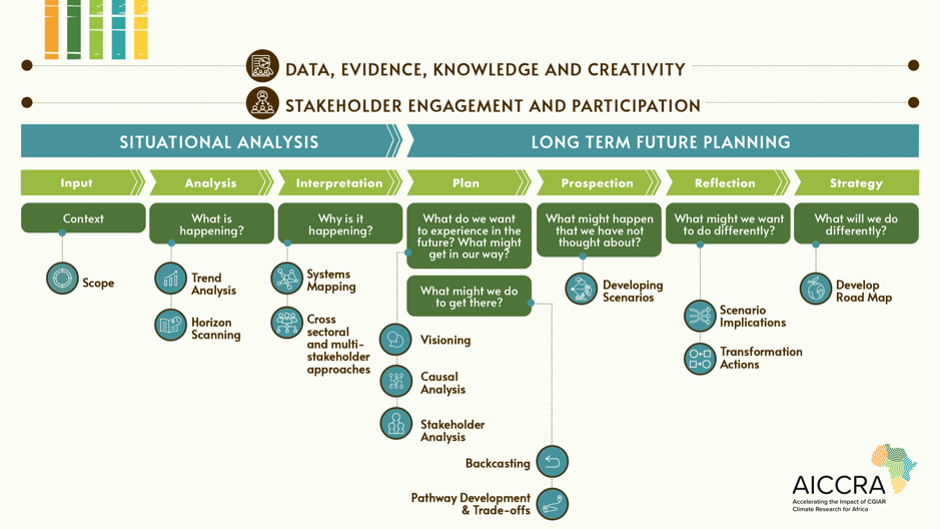 Figure: The foresight framework. It was applied in the training and it took participants through key stages in a foresight process.
Figure: The foresight framework. It was applied in the training and it took participants through key stages in a foresight process.
The training emphasized the need for a mindset change to allow for future-oriented planning. Future thinking requires, among others, comfort with uncertainty, to be able to shift one's narrative to one of purposeful shared meaning based on a solid vision, to think in systems, and to balance creative and analytical skills.
Practical tools that were shared included: trend analysis and horizon scanning, systems mapping and causal analysis, visioning, backcasting scenario development and the elements of transformative pathways for climate resilience.
The training was highly interactive; participants engaged in virtual exercises, breakout groups and cross-learning.
For example, participants were exposed to horizon scanning, a key foresight method, which focused on analyzing trends for key signals of change.
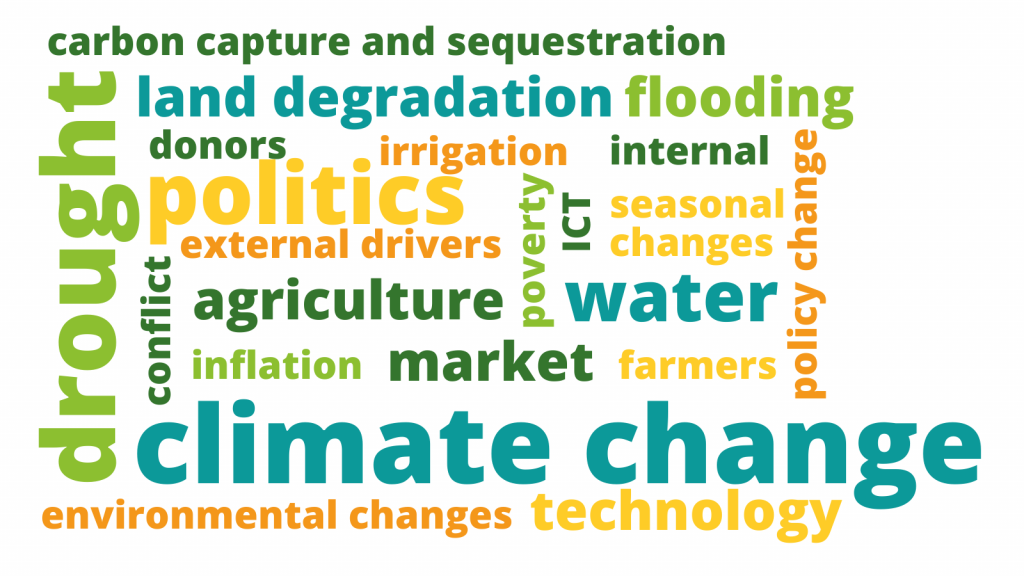
Exercise from the training series: What driver do you think will be highly impactful in your country in the next 10 years?
Learning insights from the participants
One of the breakout group exercises focused on understanding possible applications of foresight based on the introduction to the approach and some key methods. For example, one trainee intends to use foresight on a project in the Southern part of Zimbabwe where farmers will cross-breed indigenous goats with exotic breeds to improve resilience and meat quality, and to counter diseases. Another trainee works on pest management strategies for enhancing the food production process and improving food and nutrition security in Mozambique. A participant from South Africa works for the Department of Agriculture responsible for climate change and disaster risk reduction. They will develop a climate-smart agriculture framework and were interested in applying foresight planning for effective implementation.
In the final evaluation for the series, almost all (94%) of participants responded that they found the training useful for their work. Many of them shared that they learned how to apply foresight for developing strategies including identifying drivers, applying different foresight tools within the planning process, and mapping the future while considering the past and the present.
Based on requests for the training and feedback from the participants, across Africa and especially in the climate change and agriculture sectors, there is a great demand for further support, exposure and application of foresight. The training team will be working closely with several participants on tailored applications of foresight methods directly into policy and strategy processes that were outlined by participants.
Stay tuned for more updates on foresight!
Click below to access the Foresight Training Toolkit:
Or you can download each part of the toolkit from the link below:
* The Comprehensive Africa Agriculture Development Programme ex Pillar 4 (CAADP-XP4) programme is funded by the European Union (EU) and administered by the International Fund for Agricultural Development (IFAD).
The training was organized by the Centre for Coordination of Agricultural Research and Development for Southern Africa (CCARDESA) in collaboration with Accelerating Impacts of CGIAR Climate Research for Africa (AICCRA) project, funded by the International Development Association (IDA) of the World Bank.
